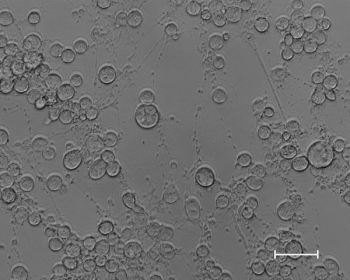
Veterinary homeopathy group sues over continuing education credit denial
Leucadia, Calif. - The Academy of Veterinary Homeopathy (AVH) has asked a Virginia circuit court to award it more than $70,000 in damages after its continuing education (CE) courses were denied approval by the American Association of Veterinary State Boards' (AAVSB) Registry of Approved Continuing Education (RACE) Committee.
LEUCADIA, CALIF. — The Academy of Veterinary Homeopathy (AVH) has asked a Virginia circuit court to award it more than $70,000 in damages after its continuing education (CE) courses were denied approval by the American Association of Veterinary State Boards' (AAVSB) Registry of Approved Continuing Education (RACE) Committee.
AVH continuing education conferences have been approved for CE credit by RACE since 2000, with its provider agreement having been approved at least four times—most recently in March 2009, according to the lawsuit. But an application submitted in July 2009 for AVH's annual conference that October did not meet the same fate.
About a month after submitting its application to secure RACE-approved CE credits at the conference, AVH was asked to submit presentations, handouts, course notes and reading lists to expand on the content covered at the conference. The content and nature of the programs planned for the 2009 conference were similar to those approved in previous years, AVH contends in the lawsuit. In September 2009, additional materials—conference proceedings—were also requested, and AVH sent the materials days later.
Initially told a decision would be made three to four weeks from AAVSB's receipt of the program application in August 2009, AVH contacted the academy in October—eight days before the start of the conference—saying it had not received any communication on the status of its application. A few days later, AAVSB replied that the application was still under consideration and would take at least another week, according to the lawsuit. AAVSB told AVH more time was needed again when it inquired about its program application again in November, 15 days after the end of its conference.
On January 13, 2010, more than five months since the submission of its application to RACE and two months after its conference was held, AVH says it received a letter from the AAVSB Board of Directors and the RACE Committee stating that its request for CE credit approval had been denied.
The letter went on to state that because homeopathy is not currently taught in accredited colleges or schools of veterinary medicine, it does not meet RACE standards, which require a program to "build upon or refresh the participant in standards for practice and courses as found in the curriculum of accredited colleges or schools."
AVH claims the denial constitutes breach of contract and fraud in the inducement of contract. The group is asking the court to award it $10,000 to cover direct and consequential damages, including loss of participant revenue, plus $60,000 in punitive damages and attorney's fees.
AVH could not be reached for additional details through its office or attorney, and AAVSB officials did not return phone calls by press time. However, AAVSB states on its website that the RACE Committee regularly reviews its standards, with the latest revisions taking effect in September 2009. The standards were created with input from AAVSB member boards and the regulatory and veterinary community, according to AAVSB Executive Director Robyn Kendrick.
"Based upon these standards, certain programs may not comply with the necessary scientific backing or substantiation in current accredited veterinary education programs," Kendrick wrote.
At this time, there is no separate RACE category for complementary/alternative veterinary medicine (CAVM) programs, Kendrick adds, so they are reviewed using the same standards used for scientific/clinical programs.
According to an AAVSB fact sheet on RACE standards, programs must meet a "minimum threshold of foundational, evidence-based material that has been demonstrated scientifically valid."
In 2010, 16 CAVM programs were approved and eight were rejected. A total of 1,327 programs were approved by RACE in 2010, while 16 were denied, according AAVSB.
Newsletter
From exam room tips to practice management insights, get trusted veterinary news delivered straight to your inbox—subscribe to dvm360.





